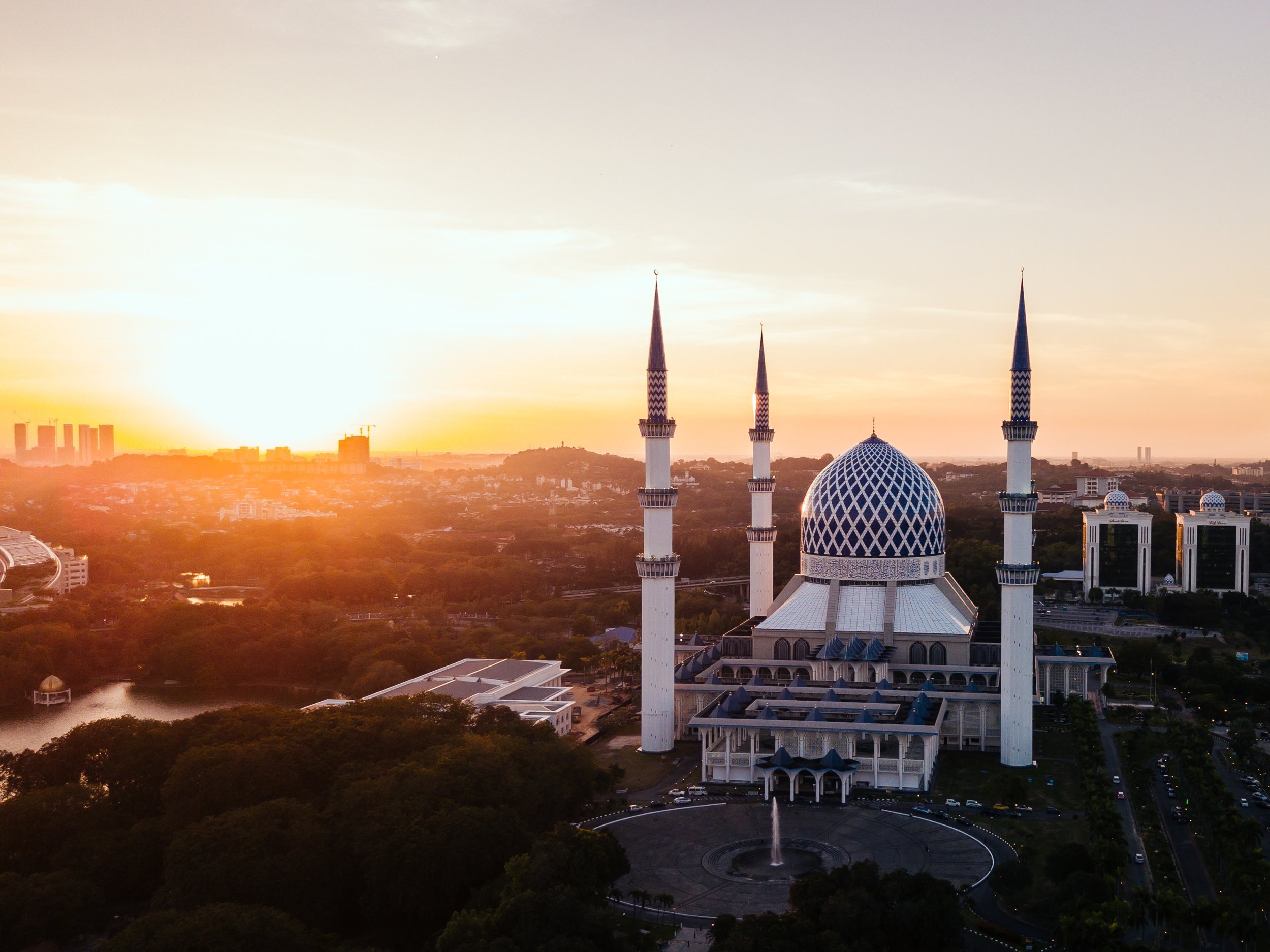Call to Prayer
I can still feel the blast of furnace heat on my tender skin, the crunch of sand blown onto my tongue by whipping desert winds, the sinking of my heart at the sight of the alien planet on which a Delta flight had landed me.
At first, it all felt like a dream, but my mind wasn’t inventive enough to conjure the foreign sights, sounds and smells that assaulted my senses each time I ventured from my villa. Flat-roofed compounds surrounded by acres of sand, the smell of naan cooking over open fire and the thick-sounding Arabic language pouring out onto the streets from shops and homes and mosques reminded me that I – a white American female – could finally understand what it meant to be a minority in a foreign country.
Educated about the Muslim world largely through American media, it was difficult for me to make sense of the seemingly contradictory scenes around me. Women in burkas strolled through luxurious department stores, arms laden with shopping bags and ornate high heels peeking out from the hem of their skirts; Arab men dressed in white thobes, casually conversing over coffee in bustling shops, taking little notice of the nervous, gawking Americans watching them. We happened to arrive in the middle of what was being dubbed the Arab Spring, a revolutionary wave of protests, riots and all-out civil war which was overtaking one middle eastern country after another. Only a month before, Bahrain had made international headlines for the violent and non-violent protests taking place in their Kingdom, so there were armored tanks and gun-toting police on every corner to prevent another protest which could shut down the government. Times were tense, yet the austere officials at the checkpoints waved back at my children as we passed them on the street.
Mornings were the most discombobulating times as the fiery sun broke over the horizon and the morning call to prayer blared unapologetically over the nearby mosque’s loud speaker. A haunting voice sang out in Arabic; I didn’t need to understand the words to know they were intrusive and annoying. Even with a pillow over my head and white noise in the background, the morning call to prayer worked its way into my offended ears.
I wasn’t the only one perturbed. The expat community commonly complained about it. One of the first pieces of advice old-timers gave newbies when looking for living quarters was to consider distance to the nearest mosque. The unspoken rule seemed to be that Americans, with a tradition of keeping big, bold line separating church and state, wouldn’t want religious compulsion flowing through their homes on a daily basis.
Keeping distance from the loudspeakers seemed wise to me, yet when a villa became available which was perfect for our family’s needs but happened to be situated across the street from a mosque, other priorities won out over my desire for peace and quiet.
So began my life with the call to prayer washing over me, five times every single day.
It wasn’t long before I grew accustomed to the sound in my ears as I rose from bed or prepared a meal or folded laundry. The faces of the faithful became familiar to me as well, going up and down our street, piling their shoes together at the door of the mosque, walking away with arms around one another. Sometimes I’d watch them or wave to them. And, always, I felt sort of lucky to witness their lives on a daily basis, something not many folks back home would ever experience.
I’m not sure when it happened, but somewhere along the way, the call to prayer began to mean something personal to me. Sometimes, if I felt homesick or was having a bad day, I’d hear the call to prayer and take it to heart. I’d lift up my own prayer to God and ask for the comfort and communion of Christ. Other times, I’d hear the call and lift up gratitude for the breath in my lungs or the children chattering downstairs. There were even times when I seethed with anger and resentment wanted dominance in my heart and the call to prayer coming through my window served as a jerk back into reality, a reminder of to whom I should bring my emotions before they got the better of me.
I found the call to prayer emerging from the mosque across the street challenging me, comforting me, changing me. As the hauntingly beautiful voice echoed through my room, I was being called to a faithfulness in prayer I’d never before experienced. It was as if God himself was singing out, “Make room for me.”
It’s been years since I lived on that desert island and yet just last week I was walking through my New York City neighborhood and heard a haunting voice over a loud speaker coming from a nearby yard. I stopped in my tracks, my ears perked, nearly on my tiptoes with anticipation. When I realized it was only a man singing karaoke in his backyard, my heart sunk.
In that moment, I realized how much I missed the daily calls to faithful prayer, those soulful reminders to make room for God. It took a few years living among Muslims, in a country unapologetic in its overt mixture of religion and government, for this Christian-American to fully embrace the rhythms of a life of prayer. It’s funny to think that the very thing I hated most at the beginning of my time in the desert, the part of the Islamic culture which seemed most foreign and intrusive to my way of life, is the one thing I wish I had back now.

